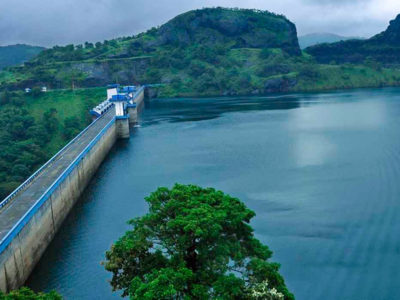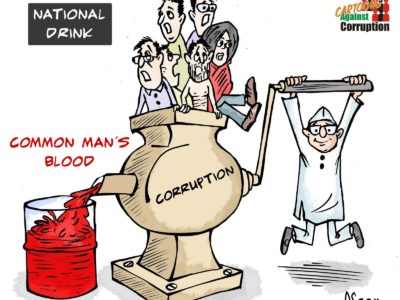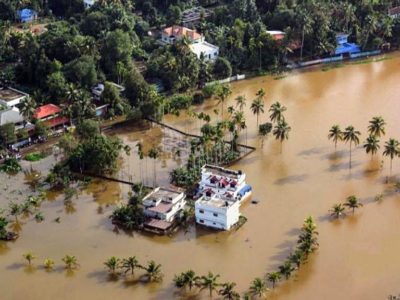India
Another Dam Climate Adaptation Problem
Report Suggests That Poor Management Intensified Kerala Flood Devastation
The Economic and Political Weekly is one of India’s most prestigious journals: for decades it has enjoyed a unique role in driving the Union’s policy conversation, partly because it is peer-reviewed. And this week, it contains a devastating report about how poor dam management exacerbated Kerala’s horrific floods. It’s an obvious issue: if dams have …
Continue reading “Another Dam Climate Adaptation Problem”
CONTINUE READINGThe Public Trust Doctrine as an Anti-Corruption Weapon
Everything Old Is New Again
As Rick noted a couple of weeks ago, the California Court of Appeal has recently decided that the public trust doctrine applies to groundwater resources — a long overdue holding that flows (so to speak) pretty much directly from the landmark Mono Lake decision that applied the PTD to surface water. (Since surface and groundwater …
Continue reading “The Public Trust Doctrine as an Anti-Corruption Weapon”
CONTINUE READINGThe Water Next Time — And This
Kerala Floods Signal That Climate Change Is Here. Now.
With the daily freak show of American politics, you might be forgiven for not noticing one of the most horrific disasters in years: the devastating floods in the southwestern Indian state of Kerala, at the tip of the subcontinent. More than 500 people have died, thousands of homes have been inundated, and more than 1.5 …
Continue reading “The Water Next Time — And This”
CONTINUE READINGStudent Guest Blogger Sarah Kozal: India, Technological Innovation, & the Energy Sector
Sarah Kozal, UCLA School of Law JD class of 2016, shares her perspective on attending the Paris climate negotiations
For students, much of the excitement of attending the COP as part of a country’s delegation comes from the opportunity to sit in multi-party negotiations. But when nearly the entire second week in Paris turned into bilateral negotiations, a break from the crazy schedule of article-focused meetings gave us a chance to explore the multitude …
CONTINUE READINGWhat Will India’s New Regime Do About Climate?
Modi Will Make Solar-Powered Trains Run On Time
When the world’s largest democracy goes through a political earthquake, people around the world notice, even in the United States. So the victory of the right-wing Hindu nationalist Bhartiya Janata Party (BJP) and its authoritarian leader Narendra Modi, has the pundits scurrying to explain what it all means. Much of the early analysis is pessimistic, …
Continue reading “What Will India’s New Regime Do About Climate?”
CONTINUE READINGClimate Adaptation and the Two Chinas (and the Two Brazils, and the Two Indias….)
The world used to be divided into developed countries and developing countries, but a third group has now taken the stage: emerging economies like China, India, and Brazil that are growing very rapidly but haven’t yet attained developed country status. But development in these countries is uneven. In China, for example, there has been explosive …
Continue reading “Climate Adaptation and the Two Chinas (and the Two Brazils, and the Two Indias….)”
CONTINUE READINGWill Driving a Prius Save the Planet?
John Voelcker says no, and he is right (h/t TPM). In fact, he is so clearly right that I am not sure why one would write this piece. Indeed, I’m a little suspicious of the hidden agenda here. Voelcker points out five things that make driving a Prius Not The Savior Of Planet Earth. They …
Continue reading “Will Driving a Prius Save the Planet?”
CONTINUE READINGThe Dark Subcontinent
Chaos has reigned over massive swathes of India during the last few days, as much of the northern part of the country outside of major urban centers has been without power. The New York Times has excellent spot coverage, but a deeper analysis comes from John Elliott’s invaluable blog, Riding the Elephant. The government has …
Continue reading “The Dark Subcontinent”
CONTINUE READING“Developing Nations Can’t Afford Environmentalism”
At least that’s what you hear a lot from some environmental skeptics. Because poor countries are so desperate for economic growth and to lift their people out of poverty, they cannot be expected to protect their environment. (You hear that from a lot for developing nations, too). They might want to take a look at …
Continue reading ““Developing Nations Can’t Afford Environmentalism””
CONTINUE READINGLiterature Imitates Law — At Least in Bombay
Aravind Adiga is one of the most brilliant forces in world literature today. His previous novel, The White Tiger, won the Man Booker Prize a few years back. Now he is out with a new novel, Last Man in Tower, a work which its publisher promises is “Searing. Explosive. Lyrical. Compassionate.” And what produces this …
Continue reading “Literature Imitates Law — At Least in Bombay”
CONTINUE READING







